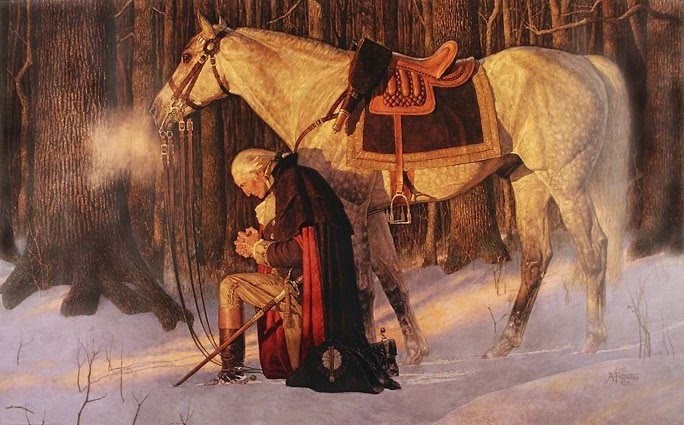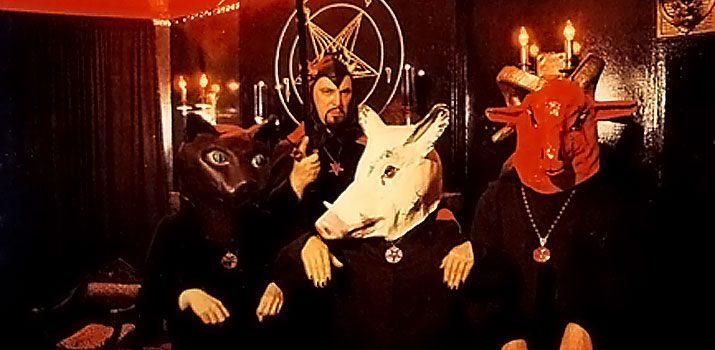Daily Stormer
March 31, 2014


The local government in the town of Greece, NY, has recently gotten into trouble over their use of Christian prayer during official meetings. This practice, we are told, “violates the Constitution”, and is therefore un-American.
From Fox News:
At their most recent monthly meeting, the five members of the Greece Town Board took their seats, gaveled to order and moved quickly through the regular opening agenda:
Roll Call. (Check.)
Pledge of Allegiance. (Check.)
Moment of Prayer. (Check.)
Leaders of this town of 96,000 outside Rochester say they have no plans to shake up the longtime routine unless, of course, the U.S. Supreme Court orders them to.
A ruling could come any day now on whether the town violated the Constitution with its opening prayers because nearly every one in an 11-year span was overtly Christian.
The suggestion that the use of Christian prayer somehow goes against the founding principles of our nation is absurd, and betrays a complete ignorance of early America and the Constitution. Liberals would have us believe that the Constitution on the one hand protects Satanists and their “right” to practice their phony religion, and on the other hand guarantees that Christianity be kept out of the public sphere. Nothing could be further from the truth.
In order to present to the reader an accurate picture of Christianity in early America, we present the following passage from R.J. Rushdoony’s The Nature of the American System:
The colonies were by nature and history Christian. Not only the religious settlements of New England and the central states, but the Southern colonies as well had their specifically Christian purpose and character…The concept of a secular state was virtually non-existent in 1776 as well as in 1787, when the Constitution was written, and no less so when the Bill of Rights was adopted. To read the Constitution as the charter for a secular state is to misread history, and to misread it radically. The Constitution was designed to perpetuate a Christian order.
…Why then is there, in the main, an absence of any reference to Christianity in the Constitution?…There is an absence of reference because the framers of the Constitution did not believe that this was an area of jurisdiction for the federal government. It would not have occurred to them to attempt to reestablish that which the colonists had fought against, namely, religious control and establishment by the central government. The colonists would not have tolerated power in the Federal Union which they had rebelled against when claimed by Crown and Parliament. Every constituent state had some form of Christian establishment or settlement which it jealously guarded. This was an area of states‘ rights, not of federal control. The Constitution, through its doctrine of express powers, had barred the federal government from any jurisdiction over the churches by omission of reference to them in the grants of powers. Nonetheless, many clergymen as well as others were fearful and demanded a bill of rights and the specific exclusion of the federal government from the realm of religion.
The First Amendment answered this demand: “Congress shall make no laws respecting an establishment of religion, or prohibiting the free exercise thereof.” It should be noted, first, that nothing is here said about the separation of church and state. No such separation of Christianity, or church, and the state existed anywhere in the United States before, or, for some generations, after, the ratification of this amendment. Second, the federal government did not secularize itself. Congress, both before and after ratification, began its sessions with divine worship and felt no inhibition in exercising its faith. Moreover, by reenacting the Northwest Ordinance of July 13, 1787, after the adoption of the First Amendment, the federal government continued the policy of Article III of that Ordinance: “Religion, morality, and knowledge being necessary to good government and the happiness of mankind, schools and the means of education shall forever be encouraged.” To ensure the Christian order of the potential states, the territories were to be helped in this respect. Third, the rights of the constituent states to maintain their Christian order without interference was underscored by barring Congress, i.e., the federal government, from either establishing or prohibiting religion. What the thirteen Christian republics had fought to uphold against Crown and Parliament they refused to surrender to a federal government. The freedom of the First Amendment from federal interference is not from religion but for religion in the constituent states.
The establishments and settlements in the constituent states were definitely and specifically Christian. In most states, single or plural establishment prevailed. Where no church was established, Christianity as such was nonetheless firmly entrenched. There were religious requirements for citizenship and suffrage, religious oaths, laws prohibiting blasphemy, laws requiring a trinitarian faith, or a firm belief in the infallibility of Scripture, and laws barring unbelievers as witnesses in court. Court decisions sometimes cited Biblical law when civil laws did not entirely fit the case. In many areas, laws against unbelief were on the statute books. A man could be imprisoned for atheism…The laws were premised on the fact that the respective states were Christian, and anti-Christianity constituted treasonable activity or belief.
